Published Feb 17, 2020
After 50 years of Fandom, Beatrice Scroggin is Still in Love With Trek
"Picard is my captain," declares this 90 year old fan.
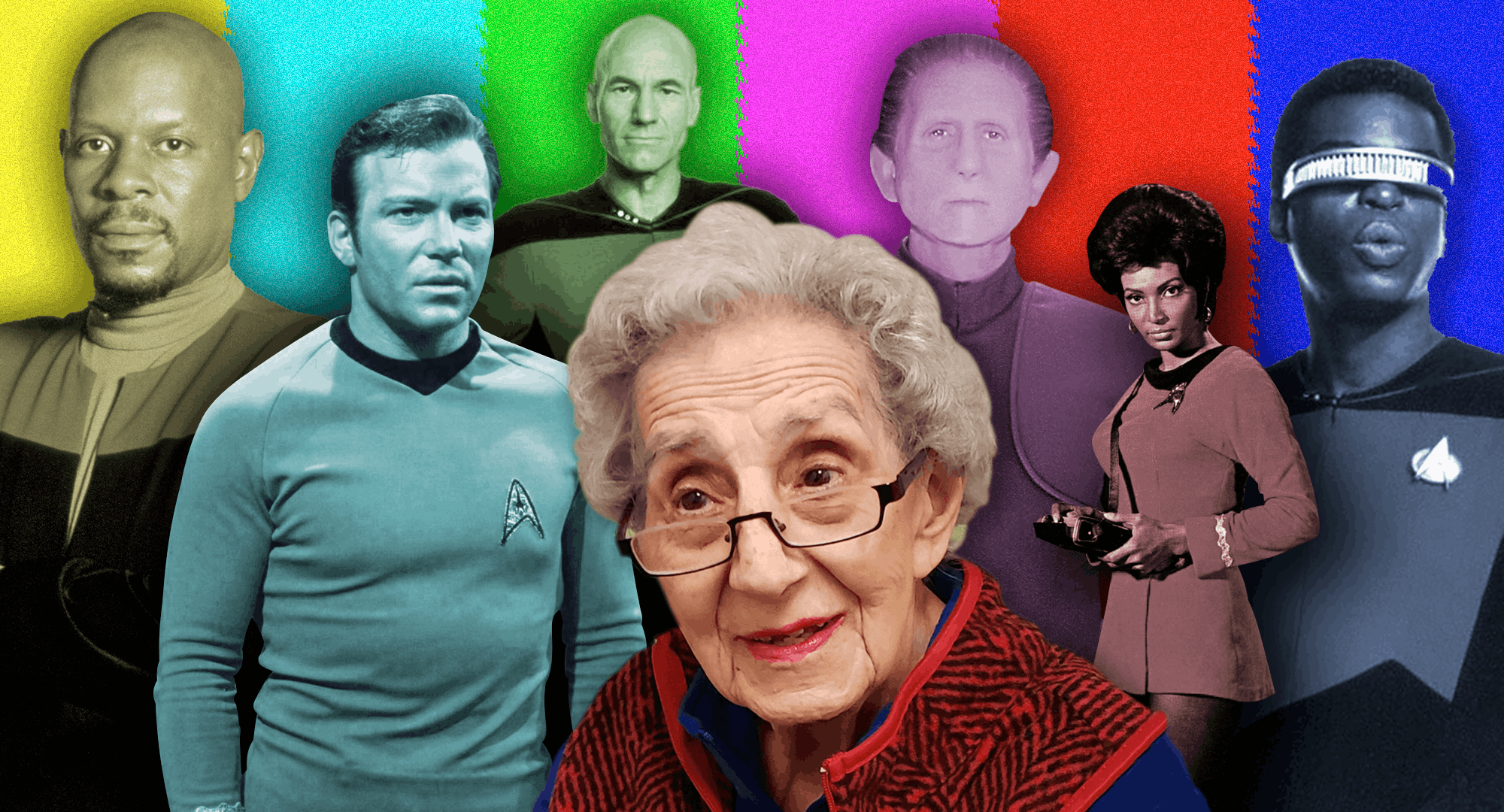
StarTrek.com
On September 8, 1966, Beatrice Scroggin sat down in her living room and turned on the TV. It was, she’s pretty certain, a color set.
“Fortunately,” she recalls, the Star Trek premiere “didn’t compete with a Western – because my husband was a Westerns person.”
Now 90 years old, Scroggin still teaches math at a Chicago-area community college, still drives, and is still every bit as passionate about Trek as she was in the immediate aftermath of "The Man Trap." “I’m a Trekker,” she stresses, “not a Trekkie.”
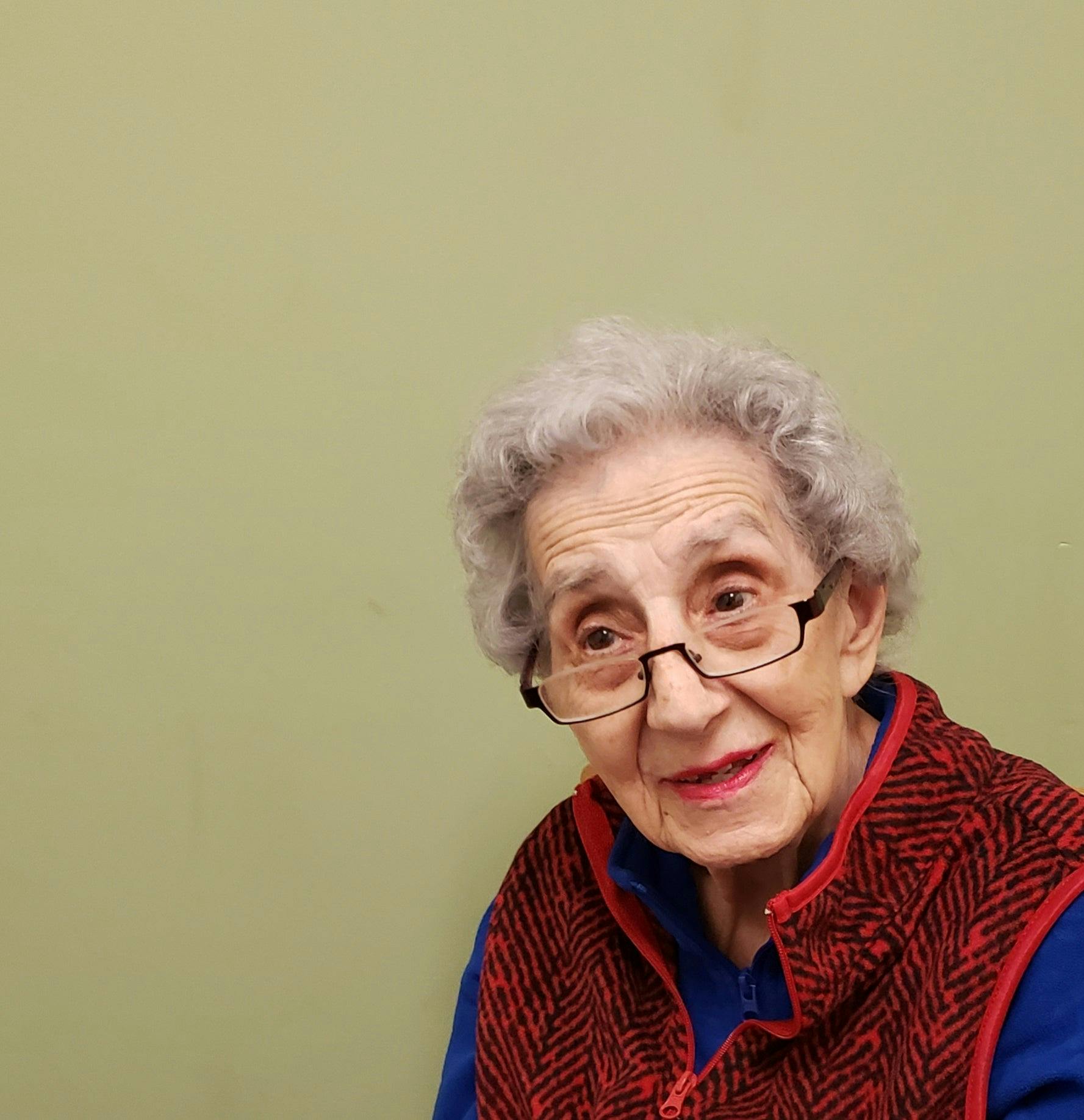
Beatrice Scroggin
“It was the philosophy of Star Trek, not the ‘Wagon Train to the Stars,’ that interested me,” Scroggin says over peach pie at a local coffee shop. She recalls that in her childhood home, her artist father, an Armenian-American who happened to be in the U.S. at the time of the Armenian genocide, hung a two-sided sign: “Abandon all hate, ye who enter here,” read one side; the other: “To understand is our task. Prejudice is the child of ignorance.”
“If one looks at the United Federation of Planets flag, what hits you right away is that it’s like the UN flag,” Scroggin says. “The edict [is] ‘infinite diversity in infinite combinations’ – as my father told me: Accept each person on the basis of their deeds.”
The years of The Original Series corresponded, of course, with the Vietnam War, the 1968 Democratic Convention in Chicago, and the fight for equal rights for those of marginalized races and genders. For Scroggin, the intersection was both apparent and necessary.
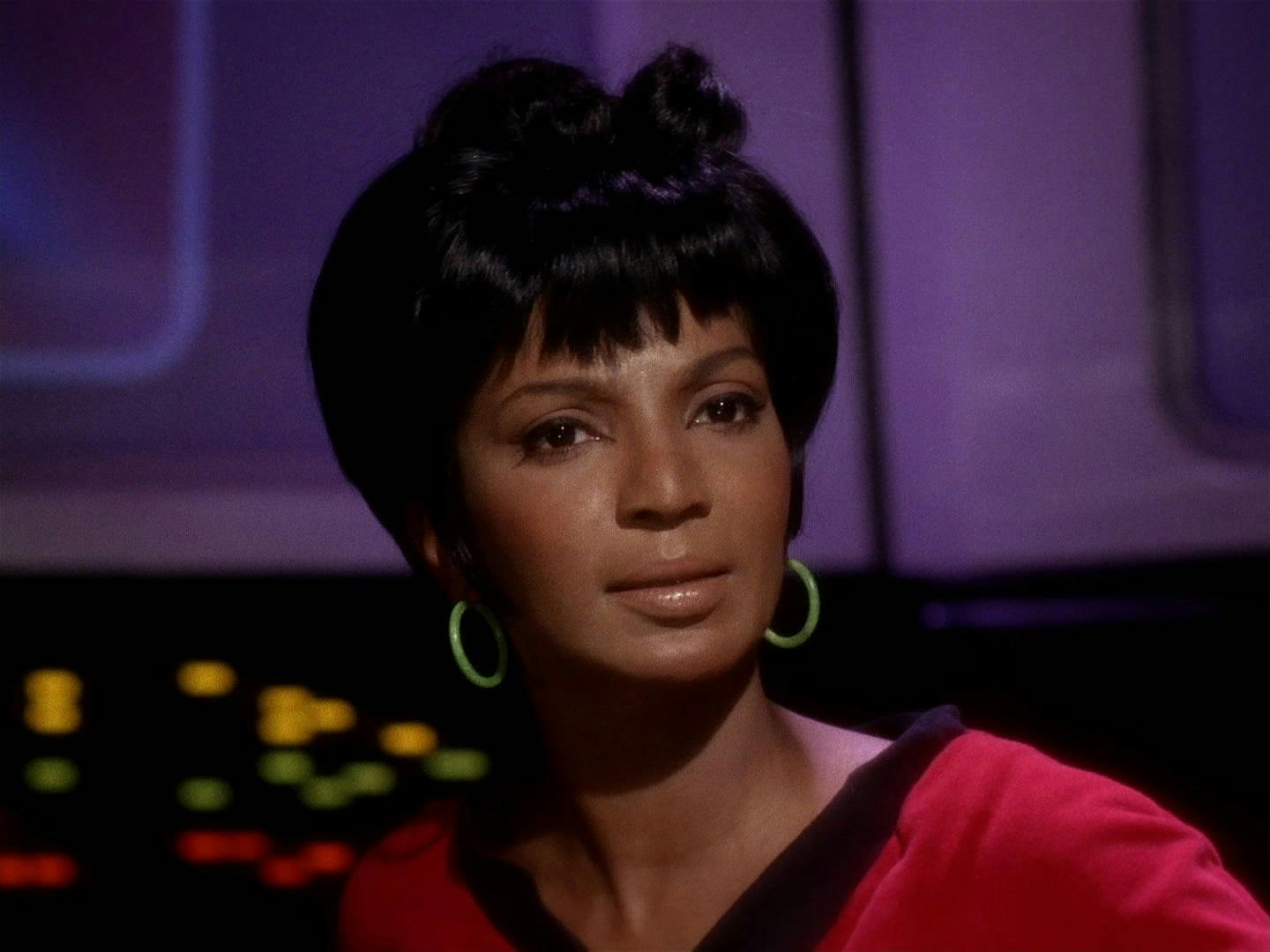
StarTrek.com
“By the fourth or fifth episode, it was obvious what Roddenberry was trying to do,” she says, recalling her husband’s reaction to one character in particular: “‘What’s that colored girl doing there?’ said my southern husband.”
She can still describe — in detail — the camera angles used in scenes on the Enterprise’s bridge, Lt. Uhura more often than not at the center; she also references, from memory, the press commentary surrounding the famous Kirk-Uhura kiss, summing the mood of critics of the time up with: “I mean, good God – this just isn’t done!”
“I was teaching high school at the time – all the war protestor kids,” she says, and recalls school assemblies where teachers struggled to get students to stand for the flag, likening those students to Colin Kaepernick today. “They were right,” she says, anger evident in her voice as she stresses every syllable.
The Kaepernick mention is not the only time Scroggin ties her love for Trek to current issues, often referencing specific episodes by name. “When I heard about that drone strike against [recently assassinated Islamic Revolutionary Guard Corps head Qasem] Soleimani, I just thought: This is not a game!” and mentions "A Taste of Armageddon," the first season episode in which a centuries-long war is fought by computer simulation. “I swear sometimes Roddenberry was a time traveler.”
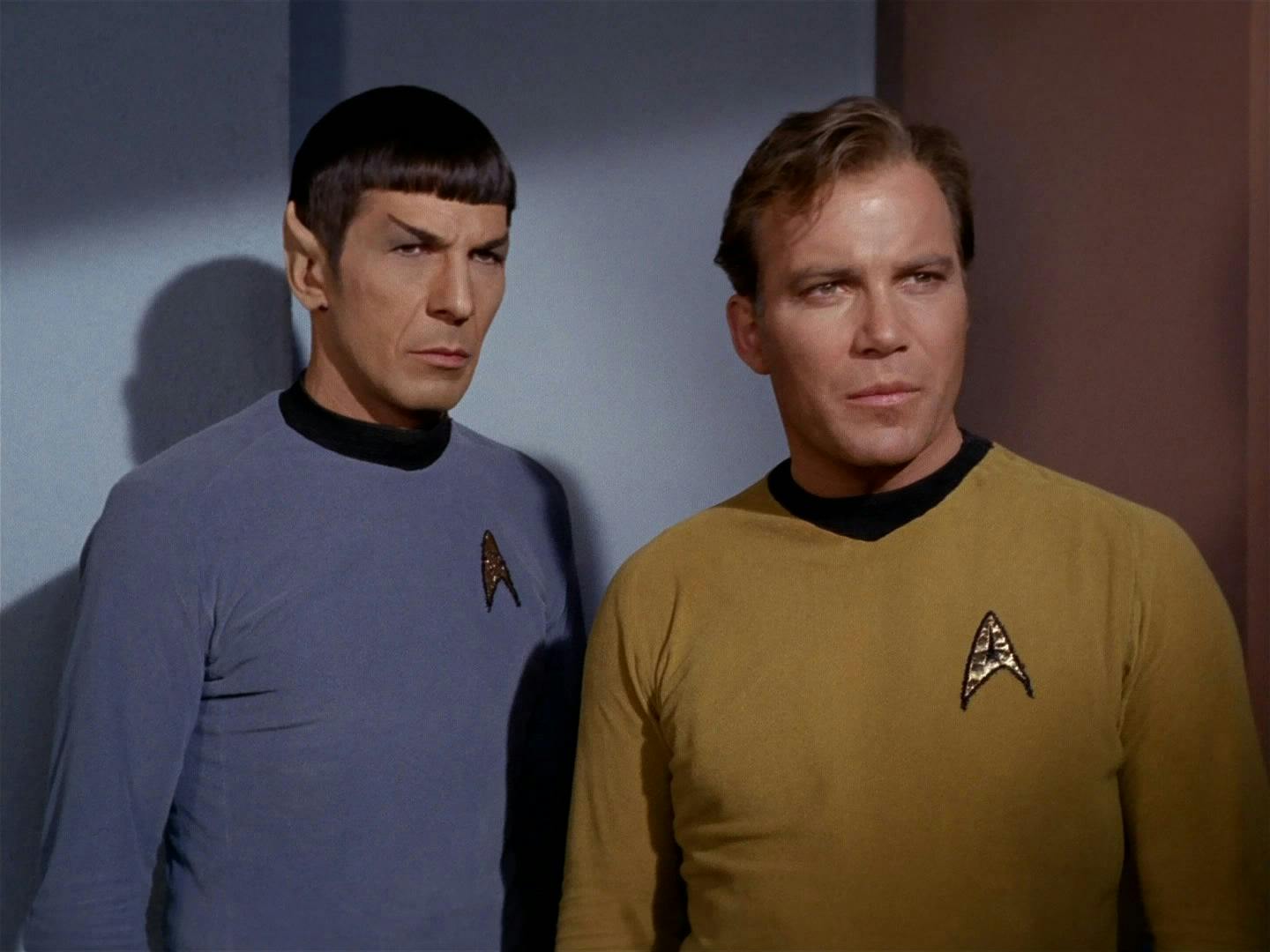
StarTrek.com
When the original Trek was canceled, Scroggin was not among those who wrote to NBC to try to save the show (“I wasn’t a person to do that then”) but she did start buying Pocket Book novelizations – “And I still have them somewhere,” she says, and begins to count: “Number one, two, three, four…” making it all the way to 12 before trailing off with a sly smile.
She was thrilled when, nearly two decades years later, Star Trek: The Next Generation made it to air. “I was never ‘oh God, they’ll never be able to duplicate it,’ because I was never into the personages. I was into the philosophy.” She’s also got a picture with Patrick Stewart tucked away somewhere: “I was always more Spock than Kirk, but actually,” she laughs, “Picard is my [captain].”
Like so many, Scroggin found something deeply personal and perhaps a little surprising in the franchise. In her younger days, she had to project authority into classrooms from a diminutive 5’ 1” – now she’s down to 4’ 11”.
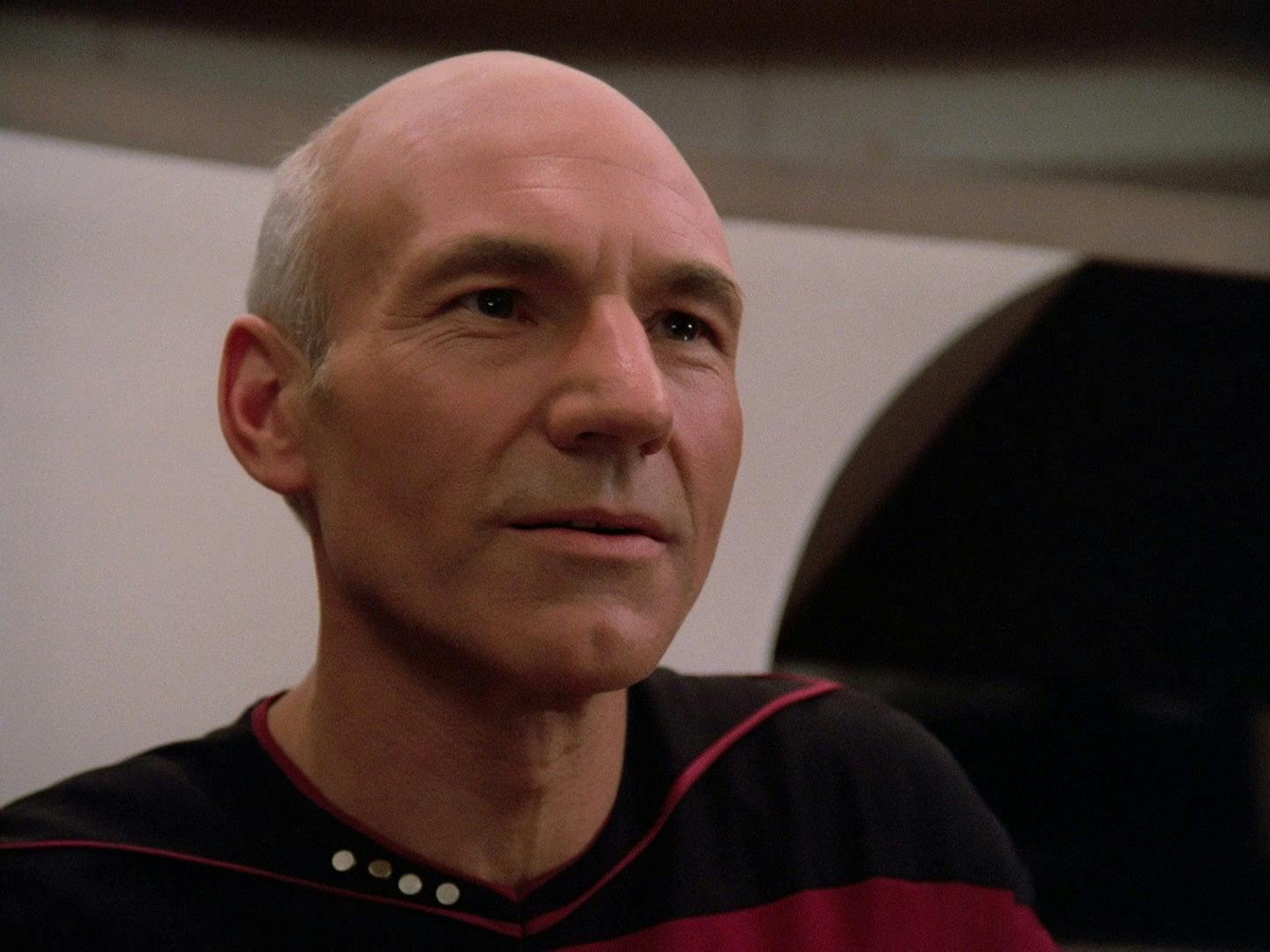
StarTrek.com
“The difference in height between Stewart and [Jonathan] Frakes —” she says and cuts herself off. “You could still catch that Picard was the captain,” she says finally, noting the gravitas Stewart brought. “It may have been tied into [my own] feeling that I may be small, but when I teach, I’m still the teacher.”
The photograph was taken at one of many area conventions Scroggin attended over the years. “[Stewart] was most gracious,” she recalls, “he treated everyone as an individual – because, you know, it’s like a cattle train!” At another con, she made a donation to Doctors Without Borders, and the late René Auberjonois gifted her with a doodle of her name dripping into an Odo bucket.
Scroggin gazes briefly into the middle distance when Deep Space Nine comes up. “DS9 was different,” she says. “It was interesting, especially the interplay between Quark and Garak and Odo.” She liked Captain Sisko and followed the series pretty closely, but was never able to follow Voyager, other than “intermittently,” because its time slot conflicted with work.
“People like LeVar Burton, Patrick Stewart, René Auberjonois, and Avery Brooks – it was the philosophy for them,” she says with evident respect, and then quietly adds “I was at the convention where Nimoy said goodbye.” Asked how that felt, she smiles a little and says “I’ve gotten to the age where – that’s life.”
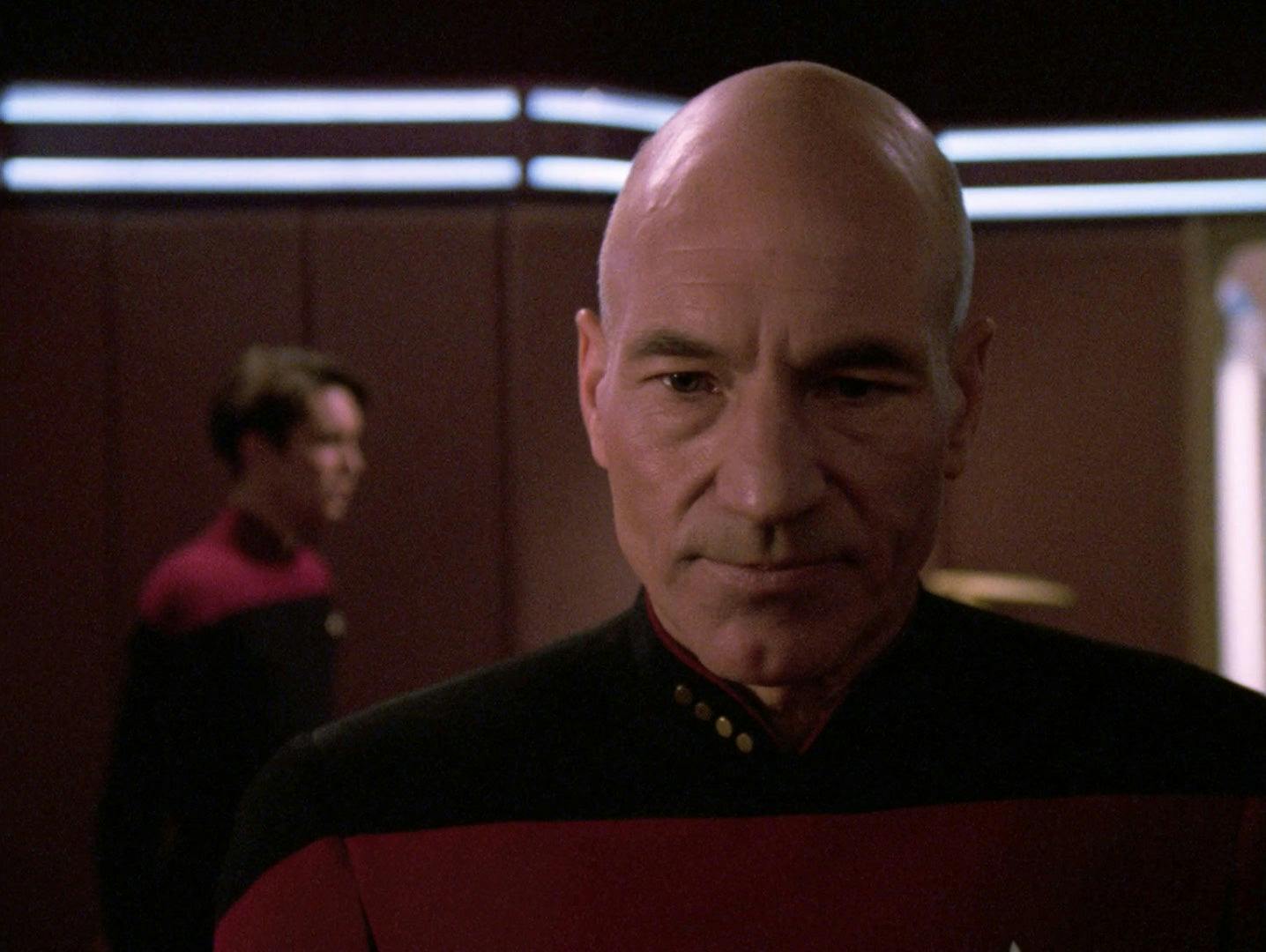
StarTrek.com
Scroggins’ husband died many years ago, her only daughter lives several states away, and just getting around in a Chicago winter can sometimes be a challenge. She’s no fan of the Trump administration, worries broadly about the country’s future, and specifically about some of her students: “If the Brown Shirters come for my Muslim students,” she says fiercely, “they’ll have to come through me.”
But a conversation about Trek inevitably raises a smile, and often an arcane bit of trivia. Though still attached to her old Blackberry, a recent introduction to a new phone with voice command functions was particularly fascinating.
As the phone’s capabilities were demonstrated to her, she looked up with a broad smile, her eyes filled with wonder. “It’s like Star Trek!”
Emily L. Hauser (she/her) is a long-time freelance writer and public librarian. She has written for The Atlantic, Washington Post, Chicago Tribune, The Daily Beast, and many other outlets. She has loved Star Trek from the moment she can remember herself. Find her on Twitter @emilylhauser

